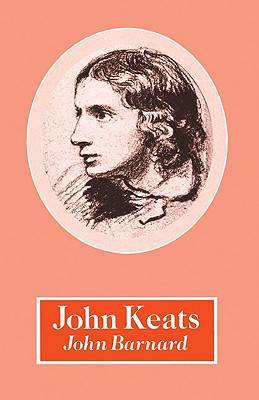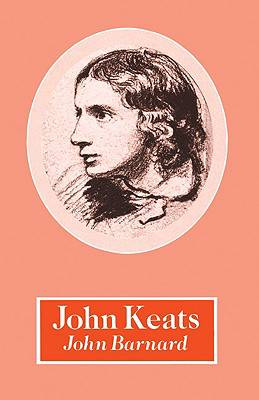
- Afhalen na 1 uur in een winkel met voorraad
- Gratis thuislevering in België vanaf € 30
- Ruim aanbod met 7 miljoen producten
- Afhalen na 1 uur in een winkel met voorraad
- Gratis thuislevering in België vanaf € 30
- Ruim aanbod met 7 miljoen producten
Zoeken
Omschrijving
This book offers a revaluation of Keats' major poetry. It reveals how Keats' work is both an oblique criticism of the dominant attitudes to literature, sexuality, religion and politics in his period, and a powerful critique of the claims of the imagination. For all that he shares the optimistic humanism of progressives like Hazlitt, Leigh Hunt, and Shelley, Keats nevertheless questions the sufficiency of either Art or Beauty. Professor Barnard shows how the notorious attack on Keats as a Cockney poet was motivated by class and political bias. He analyses the problems facing Keats as a second-generation Romantic, his continuing difficulty in finding an appropriate style for 'Poesy', and his uncertain judgement of his own work. The ambiguities and stresses evident in the poetry's treatment of women and sexual love are seen to reflect divisions in Keats and his society. The maturing use of myth from Poems (1817) to The Fall of Hyperion, and the achievement of the major odes are set in relation to Keats' whole career.
Specificaties
Betrokkenen
- Auteur(s):
- Uitgeverij:
Inhoud
- Aantal bladzijden:
- 188
- Taal:
- Engels
- Reeks:
Eigenschappen
- Productcode (EAN):
- 9780521318068
- Verschijningsdatum:
- 12/03/1987
- Uitvoering:
- Paperback
- Formaat:
- Trade paperback (VS)
- Afmetingen:
- 140 mm x 215 mm
- Gewicht:
- 272 g

Alleen bij Standaard Boekhandel
+ 129 punten op je klantenkaart van Standaard Boekhandel
Beoordelingen
We publiceren alleen reviews die voldoen aan de voorwaarden voor reviews. Bekijk onze voorwaarden voor reviews.







